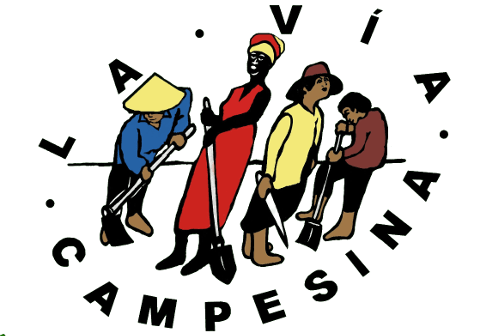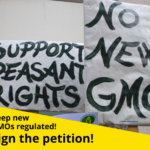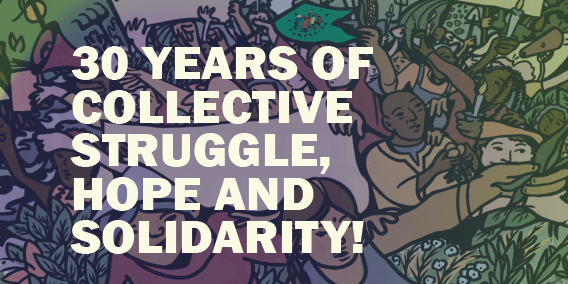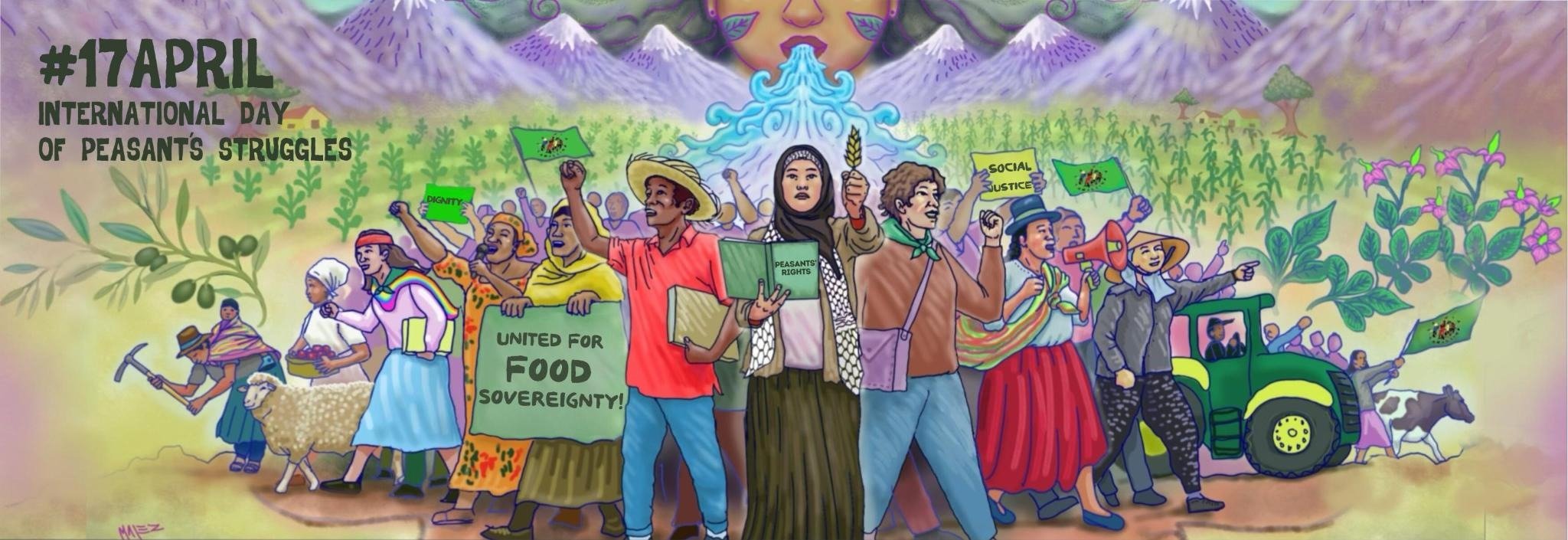Press release
(Brussels, February 7, 2022) ECVC insists that the direction laid out by the European Commission’s Sustainable Carbon Cycles (SCC) Communication is misguided and insufficient to successfully achieve the objectives of the Green Deal. In the context of the informal meeting of AGRI Council on the 7 and 8 February in Strasbourg, ECVC is yet again asking the EU institutions to rethink the logic behind the carbon farming initiative and ensure a coherent transition to agroecology, based on small and medium-scale farming.
ECVC held a press conference on 7 February, representing farmers across Europe and bringing together speakers from farmers’ organisations in France, Spain, Romania and Germany to share its concerns regarding the SCC Communication. ECVC is particularly concerned by the proposed certification mechanism, already contested by the scientific community[1], as well as the current focus on carbon credits and carbon market. Carbon farming as presented in the communication is based on isolated and unintegrated agroecological practices or unproven false solutions based on technology and genome editing. The proposed approach of the Institutions is at best naïve and, at worst, the result of the power and influence of private actors and their desire to continue polluting, using farmers to compensate their emissions.
The EU spends 30% of its budget on the CAP, to ensure farmers are able to feed the European population. Yet, the SCC Communication says that the CAP cannot support more sustainable agriculture in the long term. Therefore, the European Commission’s solution is to turn to private investors to fund environmental measures and ecosystem services, instead of working to change the unsustainable system at its core.
However, this puts even more power in the hands of large corporations who have proved themselves time and time again to be more interested in increasing their profits than in the wellbeing of citizens. It will lead to further unexpected consequences for climate change, biodiversity, more difficulties in access to land for farmers, and more social, health and economic damage to rural communities. These subsidies for carbon-based practices do not represent a stable income for farmers, especially if they come from the private sector. On the contrary, they make it even more difficult for farmers to receive prices that cover the cost of production. Ultimately, this creates more of the corruption and concentrated power that is at the root cause of many climate and agricultural issues.
Instead, we must ensure a transition towards better practices for climate and make the transition to agroecology-based systems that guarantee environmental, social and economic justice and local, healthy food for society. This requires farmers to be guaranteed fair prices and must be achieved through greater economic support in public policy, ambitious National Strategic Plans, market regulation, and a move away from trade policies which damage farmers and citizens from both the EU and the rest of the world.
ECVC is committed to fighting climate change and fully supports the objectives of the Green Deal. Nevertheless, it deems that the support and inclusion of small-scale farmers’ will be a deciding factor in this battle and calls on the EU Institutions to show the same commitment by making real changes in public policy.
Contacts
Morgan Ody – ECVC Coordinating Committee: +33 626 97 76 43 – FR, EN
Andoni Garcia Arriola – ECVC Coordinating Committee: +34 636 45 15 69 – ES, EUS
[1] IEEP report: Carbon farming | Making agriculture fit for 2030, Available here: https://www.europarl.europa.eu/thinktank/en/document/IPOL_STU(2021)69548 2






